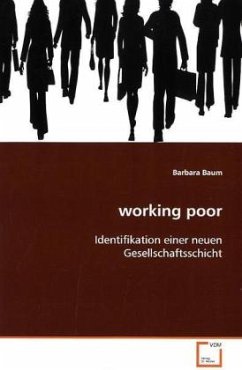
Fairtrade and Information about Working Conditions
Is there a Role for Public Policy?
Versandkostenfrei!
Versandfertig in 6-10 Tagen
32,99 €
inkl. MwSt.

PAYBACK Punkte
16 °P sammeln!
In the last decades, there has been a strong growth in private voluntary initiatives, such as Fairtrade labelling and company codes of conduct, aiming at improving conditions for workers and producers in developing countries. This book looks closer at how consumers can find and verify information about working conditions in the production of the goods they consume. Despite the many voluntary initiatives, the book argues that in many cases, consumers lack adequate information on the basis of which to make such choices. This means that there is a market failure in the provision of information ab...
In the last decades, there has been a strong growth
in private voluntary initiatives, such as Fairtrade
labelling and company codes of conduct, aiming at
improving conditions for workers and producers in
developing countries. This book looks closer at how
consumers can find and verify information about
working conditions in the production of the goods
they consume. Despite the many voluntary
initiatives, the book argues that in many cases,
consumers lack adequate information on the basis of
which to make such choices. This means that there is
a market failure in the provision of information
about working conditions, which could justify public
policy. The book considers three types of policy
intervention: Public provision of information,
public regulation of labour standards through trade
policy, and the public sector s actions in the
marketplace, e.g. through public procurement and
public investment. The book surveys existing public
policy in these areas, and briefly discusses their
effects and the relationships between them. The book
aims at providing a basis for future research, and
may also be of use to policy-makers.
in private voluntary initiatives, such as Fairtrade
labelling and company codes of conduct, aiming at
improving conditions for workers and producers in
developing countries. This book looks closer at how
consumers can find and verify information about
working conditions in the production of the goods
they consume. Despite the many voluntary
initiatives, the book argues that in many cases,
consumers lack adequate information on the basis of
which to make such choices. This means that there is
a market failure in the provision of information
about working conditions, which could justify public
policy. The book considers three types of policy
intervention: Public provision of information,
public regulation of labour standards through trade
policy, and the public sector s actions in the
marketplace, e.g. through public procurement and
public investment. The book surveys existing public
policy in these areas, and briefly discusses their
effects and the relationships between them. The book
aims at providing a basis for future research, and
may also be of use to policy-makers.












